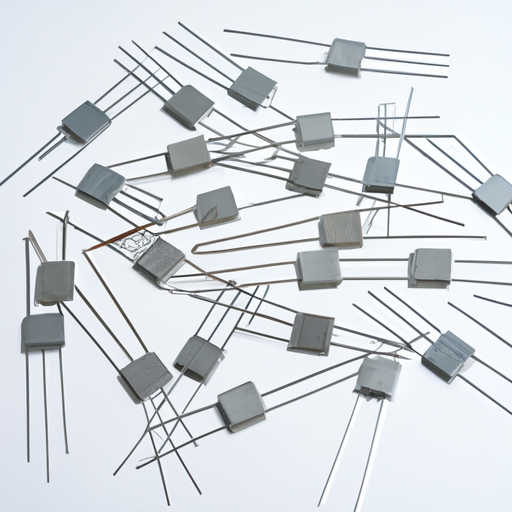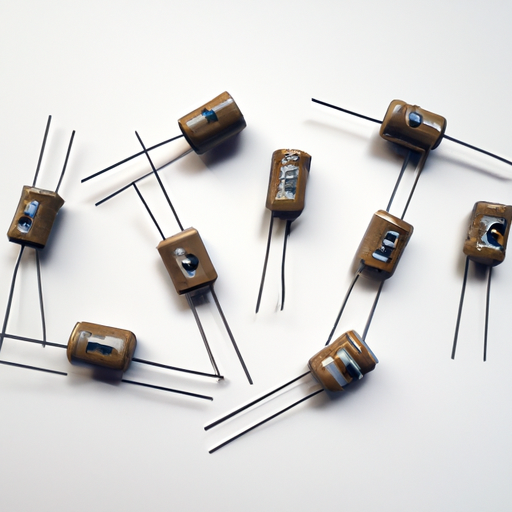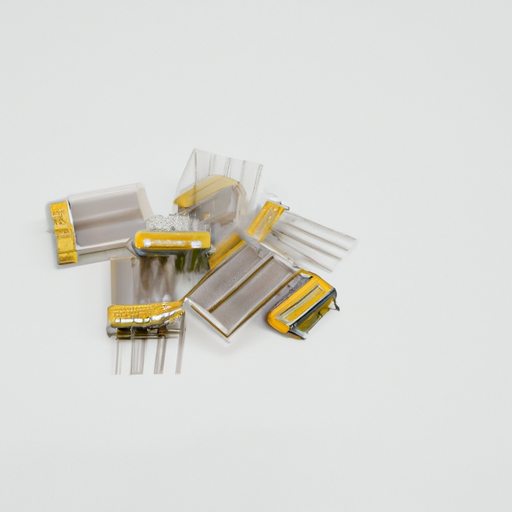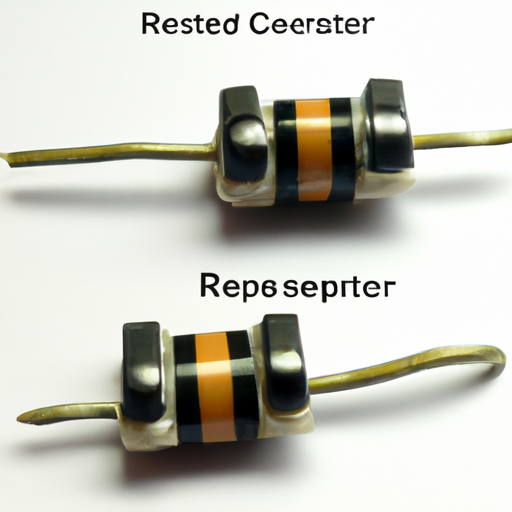What are the main applications of current sensing resistors?
What are the Main Applications of Current Sensing Resistors?
I. Introduction
In the realm of electrical engineering, precision and accuracy are paramount. One of the critical components that facilitate these qualities is the current sensing resistor. These resistors play a vital role in measuring and managing electrical current in various applications, ensuring that systems operate efficiently and safely. This blog post will delve into the definition of current sensing resistors, their importance in electrical systems, and their diverse applications across multiple industries.
II. Understanding Current Sensing Resistors
A. Basic Principles of Operation
Current sensing resistors operate on the fundamental principle of Ohm's Law, which states that the current flowing through a conductor between two points is directly proportional to the voltage across the two points and inversely proportional to the resistance of the conductor. This relationship allows engineers to measure current by observing the voltage drop across a known resistance.
When a current flows through a current sensing resistor, a small voltage drop occurs, which can be measured and used to calculate the current. This method is particularly advantageous because it allows for non-intrusive measurements, meaning the resistor can be integrated into a circuit without significantly affecting its performance.
B. Types of Current Sensing Resistors
1. **Shunt Resistors**: These are the most common type of current sensing resistors. They are placed in series with the load, and their low resistance value ensures minimal impact on the circuit's overall performance. Shunt resistors are widely used in applications requiring high accuracy.
2. **Precision Resistors**: Designed for applications that demand high accuracy and stability, precision resistors have tight tolerances and low temperature coefficients. They are often used in sensitive measurement devices.
3. **Power Resistors**: These resistors are built to handle high power levels and are used in applications where significant current flows. They are typically larger and can dissipate heat effectively.
C. Key Specifications
When selecting a current sensing resistor, several key specifications must be considered:
1. **Resistance Value**: The resistance value determines the amount of voltage drop for a given current. It is crucial to choose a value that balances accuracy with minimal impact on the circuit.
2. **Power Rating**: This specification indicates the maximum power the resistor can handle without overheating. It is essential to select a resistor with an appropriate power rating for the application.
3. **Tolerance and Temperature Coefficient**: Tolerance refers to the allowable deviation from the specified resistance value, while the temperature coefficient indicates how much the resistance changes with temperature. Both factors are critical for ensuring measurement accuracy.
III. Main Applications of Current Sensing Resistors
Current sensing resistors find applications across various industries, each leveraging their unique properties to enhance performance and safety.
A. Power Management Systems
1. **Battery Management Systems (BMS)**: In electric and hybrid vehicles, BMSs use current sensing resistors to monitor battery health, charge levels, and overall performance. Accurate current measurement is essential for optimizing battery life and ensuring safety.
2. **Power Supply Units (PSUs)**: Current sensing resistors are integral to PSUs, where they help regulate output current and protect against overload conditions. By monitoring current, PSUs can adjust their output to maintain stable operation.
B. Electric Vehicles (EVs)
1. **Motor Control**: In EVs, current sensing resistors are used to monitor the current flowing to the electric motor. This information is crucial for controlling motor speed and torque, ensuring efficient operation.
2. **Battery Monitoring**: Current sensing resistors help monitor the charging and discharging cycles of EV batteries, providing data that can be used to optimize performance and extend battery life.
C. Renewable Energy Systems
1. **Solar Inverters**: In solar energy systems, current sensing resistors are used to monitor the output current from solar panels. This data is essential for optimizing energy conversion and ensuring the system operates within safe limits.
2. **Wind Turbine Controllers**: Current sensing resistors help monitor the performance of wind turbines by measuring the current generated. This information is vital for adjusting turbine operation to maximize energy production.
D. Consumer Electronics
1. **Smartphones and Tablets**: Current sensing resistors are used in mobile devices to monitor battery usage and optimize power consumption. This helps extend battery life and improve overall device performance.
2. **Laptops and Desktops**: In computers, current sensing resistors are employed to manage power distribution and monitor the performance of various components, ensuring efficient operation.
E. Industrial Automation
1. **Robotics**: In robotic systems, current sensing resistors are used to monitor motor currents, allowing for precise control of movement and ensuring safe operation.
2. **Motor Drives**: Current sensing resistors are critical in motor drive applications, where they help regulate current to prevent overheating and ensure efficient operation.
F. Medical Devices
1. **Diagnostic Equipment**: In medical diagnostics, current sensing resistors are used to monitor the performance of various devices, ensuring accurate readings and safe operation.
2. **Wearable Health Monitors**: Current sensing resistors are integral to wearable devices that monitor health metrics, providing real-time data on user activity and health status.
G. Telecommunications
1. **Base Stations**: In telecommunications, current sensing resistors are used in base stations to monitor power consumption and ensure efficient operation.
2. **Network Equipment**: Current sensing resistors help manage power distribution in network equipment, ensuring reliable performance and preventing overload conditions.
IV. Advantages of Using Current Sensing Resistors
The use of current sensing resistors offers several advantages:
A. High Accuracy and Precision
Current sensing resistors provide highly accurate measurements, making them ideal for applications where precision is critical. Their ability to deliver reliable data enhances the performance of various systems.
B. Cost-Effectiveness
Compared to other current sensing methods, such as Hall effect sensors, current sensing resistors are often more cost-effective. Their simplicity and reliability make them a popular choice in many applications.
C. Compact Size and Integration
Current sensing resistors are typically small and can be easily integrated into existing circuits. This compact size allows for more efficient designs and can help save space in electronic devices.
D. Reliability and Durability
Current sensing resistors are known for their reliability and durability, making them suitable for demanding environments. Their robust construction ensures consistent performance over time.
V. Challenges and Considerations
While current sensing resistors offer numerous benefits, there are also challenges and considerations to keep in mind:
A. Thermal Management
As current flows through a resistor, it generates heat. Effective thermal management is essential to prevent overheating, which can lead to inaccurate measurements or component failure.
B. Noise and Interference
Current sensing resistors can be susceptible to noise and interference, which may affect measurement accuracy. Proper circuit design and shielding techniques are necessary to mitigate these issues.
C. Selection Criteria for Specific Applications
Choosing the right current sensing resistor requires careful consideration of various factors, including resistance value, power rating, and application requirements. Engineers must evaluate these criteria to ensure optimal performance.
VI. Future Trends in Current Sensing Technology
As technology continues to evolve, so do the applications and capabilities of current sensing resistors:
A. Advances in Materials and Design
Innovations in materials and design are leading to the development of more efficient and accurate current sensing resistors. These advancements will enhance performance and broaden their applications.
B. Integration with Smart Technologies
The rise of smart technologies and the Internet of Things (IoT) is driving demand for advanced current sensing solutions. Future current sensing resistors may incorporate smart features, enabling real-time monitoring and data analysis.
C. Growing Demand in Emerging Markets
As industries such as electric vehicles and renewable energy continue to grow, the demand for current sensing resistors is expected to increase. This trend will likely lead to further innovations and improvements in current sensing technology.
VII. Conclusion
Current sensing resistors are essential components in modern electrical systems, providing accurate and reliable measurements of current across various applications. From power management systems to consumer electronics and medical devices, their versatility and effectiveness make them invaluable in today's technology-driven world. As we look to the future, advancements in materials, design, and integration with smart technologies will continue to enhance the capabilities of current sensing resistors, ensuring their relevance in an ever-evolving landscape. Understanding their applications and benefits is crucial for engineers and designers seeking to optimize performance and safety in their systems.





